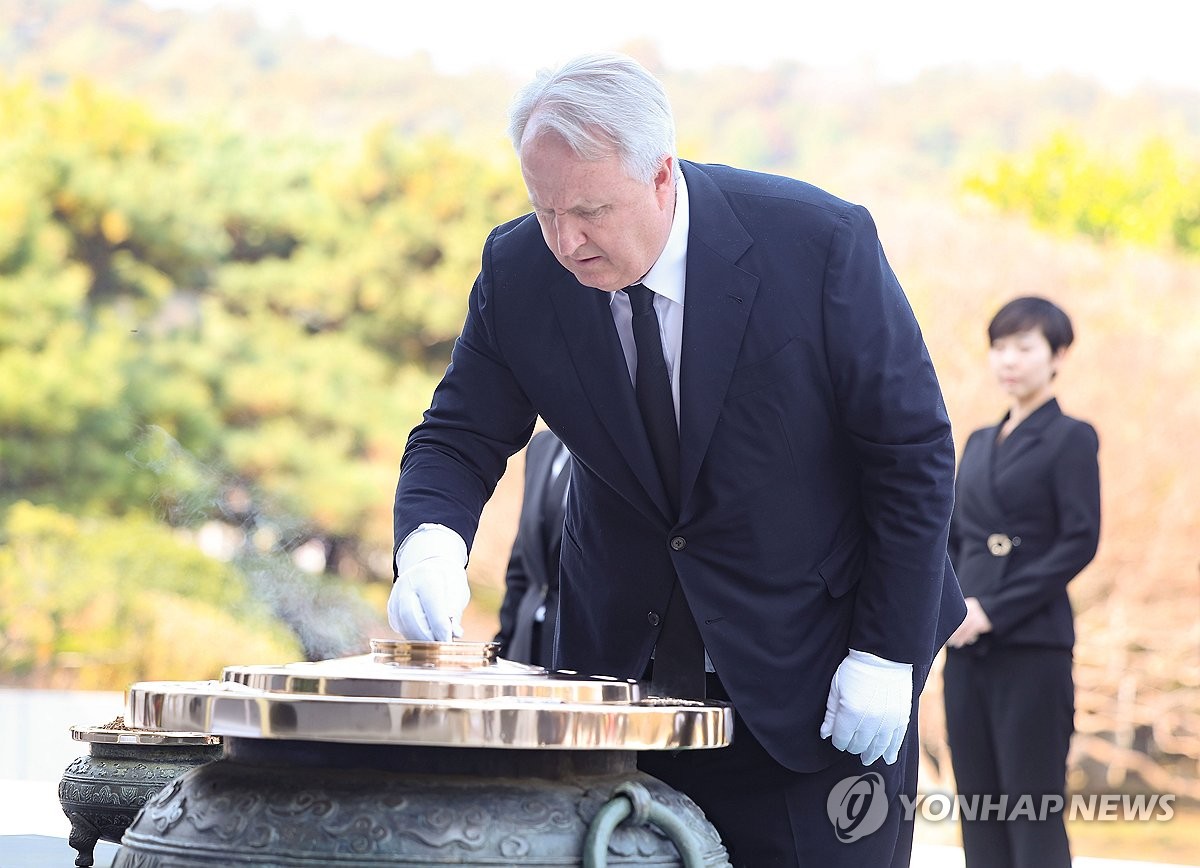- California Assembly OKs highest minimum wage in nation
- S. Korea unveils first graphic cigarette warnings
- US joins with South Korea, Japan in bid to deter North Korea
- LPGA golfer Chun In-gee finally back in action
- S. Korea won’t be top seed in final World Cup qualification round
- US men’s soccer misses 2nd straight Olympics
- US back on track in qualifying with 4-0 win over Guatemala
- High-intensity workout injuries spawn cottage industry
- CDC expands range of Zika mosquitoes into parts of Northeast
- Who knew? ‘The Walking Dead’ is helping families connect
PPP innovation chief pays tribute to victims of 1980 democracy uprising in gesture for national unity
The innovation chief of the ruling People Power Party (PPP) paid tribute Monday to victims of the bloody crackdown on a 1980 pro-democracy uprising in the southwestern city of Gwangju, praising the movement as a key milestone in South Korea’s democratization.
The visit to the May 18 National Cemetery in Gwangju, about 270 kilometers south of Seoul, was the first outside event that Ihn Yohan, the American-Korean chairman of the PPP’s innovation committee, engaged in since the committee’s full formation last week.
The visit was a gesture for national unity, a point that Ihn has put forward as one of the key words, along with “change,” of his committee launched to revamp the image of the ruling party struggling with low approval numbers ahead of next year’s general elections.
“The Gwangju Democratization Movement was a huge accomplishment in the advancement of democracy and remains in our memories,” Ihn told reporters. “Let me borrow what the Jewish people said. We should forgive, but not forget.”
In the guestbook, he wrote: “Gwangju is perfecting democracy in the Republic of Korea.”
Ihn also knelt before the graveyard of the missing and offered a moment of silence.
Gwangju and the surrounding Jeolla provinces are the traditional stronghold of the main opposition Democratic Party, and the bloody quelling of the 1980 uprising is a key source of negative sentiment in the region toward the PPP as the party is seen as rooted in the military dictatorship behind the crackdown that left about 200 people dead and thousands injured.
“Going forward, we must teach our children the meaning of Gwangju and take good care of the victims’ families and their descendants,” Ihn said. “The local government has done a good job on this so far, but from now on, the central government should embrace them all so that they can talk proudly about their ancestors or mothers and fathers wherever they go.”
Ihn also recalled his own memory of volunteering as an interpreter for foreign press during the massacre, and shared some of the quotes from the citizens’ militia leader.
“The words of the civilian representative still rings loudly in my ears to this day,” he said.
After the visit to the cemetery, Ihn met with three victims groups and their bereaved families.
The three groups delivered a proposal letter, which included requests for the inclusion of the spirit of the democratization movement in the Constitution, and in response Ihn vowed to do the best he can to meet those requests.
Ihn also visited Seoul National Cemetery in the afternoon upon his return to Seoul.













